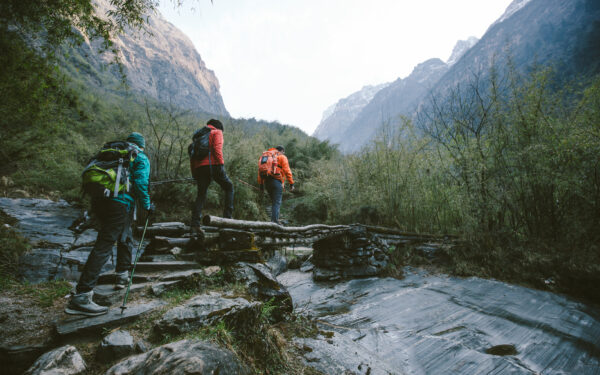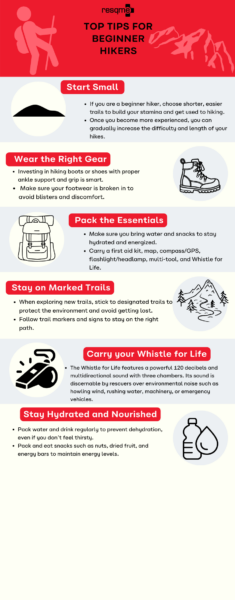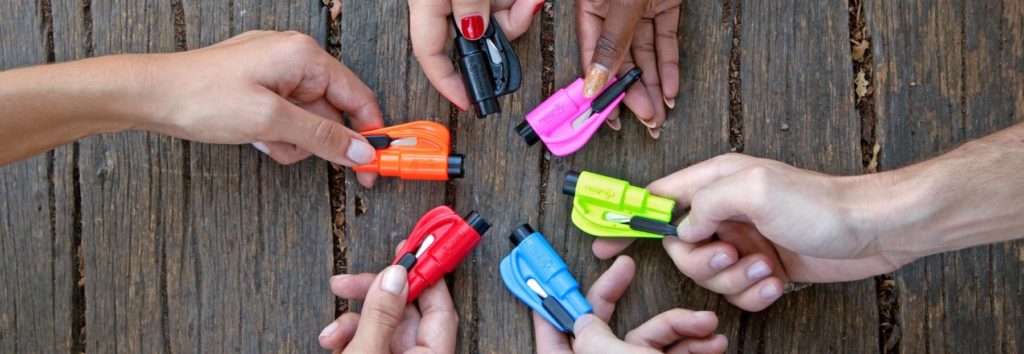- Start Small
-If you are a beginner hiker, choose shorter, easier trails to build your stamina and get used to hiking.
-Once you become more experienced, you can gradually increase the difficulty and length of your hikes.
- Wear the Right Gear
– Investing in hiking boots or shoes with proper ankle support and grip is smart.
– Make sure your footwear is broken in to avoid blisters and discomfort.
- Pack the Essentials
– Make sure you bring water and snacks to stay hydrated and energized.
– Carry a first aid kit, map, compass/GPS, flashlight/headlamp, multi-tool, and Whistle for Life.
- Stay on Marked Trails
– When exploring new trails, stick to designated trails to protect the environment and avoid getting lost.
– Follow trail markers and signs to stay on the right path.

- Stay Hydrated and Nourished
– Pack water and drink regularly to prevent dehydration, even if you don’t feel thirsty.
– Pack and eat snacks such as nuts, dried fruit, and energy bars to maintain energy levels.
- Be Prepared for Emergencies with your Whistle for Life
-Be Prepared for Emergencies with your Whistle for Life-you never know what situations can occur when hiking, which is why it’s important to stay prepared and safe.
-The Whistle for Life features a powerful 120 decibels and multidirectional sound with three chambers. Its sound is discernable by rescuers over environmental noise such as howling wind, rushing water, machinery, or emergency vehicles.
By following these tips, beginner hikers can enhance their hiking experience, stay safe, and develop a lifelong love for the outdoors.



